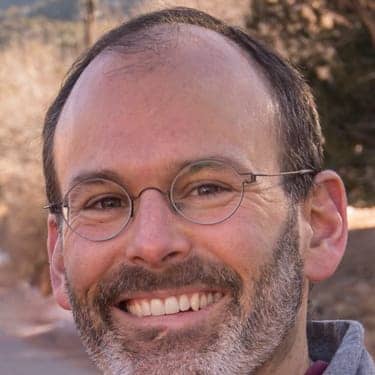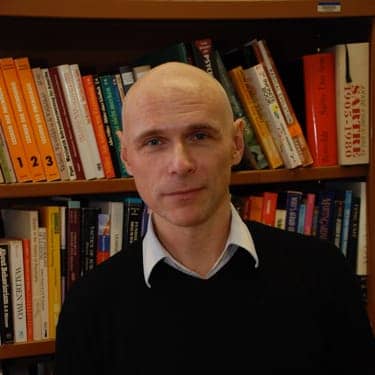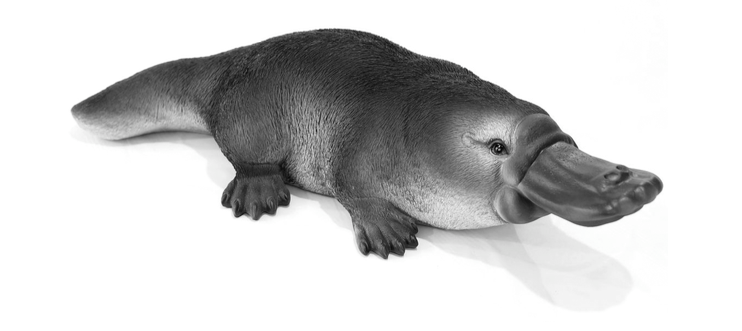
The Platypus Institute is a NeuroPerformance organization. We leverage cutting-edge neuroscience to help you optimize your brain.
We translate cutting-edge neuroscience discoveries into practical tools and programs that measurably enhance human performance and advance scientific knowledge.
Our work generates measurable and long-lasting changes in your brain’s circuitry. Brain functions we impact include:
The end result? You will experience dramatically enhanced brain performance in the areas where it counts.
During the past decade, a confluence of scientific breakthroughs in neuroimaging, biotechnology, cybernetics, sensor technology and data analytics have created a new tool in the self-improvement arsenal.
Today, for the first time in history, we can “rewire” the human brain and body in highly targeted ways that materially enhance cognition, creative capacity, learning speeds, health, and even longevity.
In turn, these scientific breakthroughs are allowing us to apply neuroscience in practical and powerful ways - to help individuals and teams garner a measurable competitive edge and to elevate the human experience.
We believe that every individual has an untapped capacity for change and growth.
Our guiding purpose, then, is to apply neuroscience in useful ways that make a positive impact in people’s lives.
But we are also part of something bigger.
Something entirely new.
Together, we are at the forefront of a revolution where neuroscience promises to fundamentally alter the very nature of the human experience.
JOIN OUR COMMUNITY and stay informed about the latest breakthroughs in the science of human performance.
- Stephen Bochner, MD
Sector Leader, Korn Ferry
We use neuroscience to optimize the human experience.
We believe that mankind's potential for growth, at both the individual and collective level, is unlimited . . . and that we, as a society, have only begun to tap into this potential.
Through scholarly research and programmatic applications, the Platypus Institute's goal is to encourage humanity to discover, understand, and incorporate the most efficient and effective technologies available for realizing our full potential.
- Amy Kruse, PhD
Chief Scientific Officer, Platypus Institute
These are the dynamic men and women leading the way in the next phase of human evolution.

Dr. David Bach is a Harvard-trained scientist, physician, and serial entrepreneur. After spending a decade maximizing his physical and mental performance, he created the Platypus Institute to bring scientific rigor to, and create commercial applications in, the rapidly expanding arena of applied neuroscience.
Prior to becoming a scientist and physician, Dr. Bach attended Harvard College and Harvard Medical School. He worked as a research scientist at the Dana-Farber Cancer Institute and did his residency training in Internal Medicine at Mount Sinai Hospital in New York City.
As a business entrepreneur, David founded and built three healthcare companies, each of which became a $100M enterprise. He has also been a management consultant, a venture capitalist, a competitive martial artist, and a professional cellist.
Dr. Bach has always had a passionate interest in human development. After a successful exit from his third company, David decided to pursue his interest in human development while simultaneously returning to his scientific roots, and with this, he founded the Platypus Institute.
My passion for human development, and the reason I founded the Platypus Institute, comes directly from my upbringing. It’s an unusual story.
I grew up deeply immersed in the world of science. Both of my parents were scientists, and my father, Fritz Bach, was widely considered to be one of the founders of modern Immunology and the “inventor” of bone marrow transplantation.
Many of my childhood memories involve science: visiting labs on family vacations, analyzing research data as a young child, listening to hours of dinner conversations with Nobel Laureates as they’d heatedly argued about the studies they were conducting.
As you might imagine, the scientific method was drummed into me. My parents taught me: “Never believe what people tell you. Never believe common wisdom. Investigate and do your own research. Look at the raw data. Form your own hypotheses and test those hypotheses.” This way of thinking has permeated my life – and has had a huge impact on me, for better or for worse.
Not surprisingly, after college, I became a scientist and physician. I attended and worked at Harvard Medical School – and spent a lot of my early years in laboratories – looking at cells, looking at data, reading scientific journals, and hanging out with research scientists.
I had a problem, though. I was unhappy, and I really didn’t know how to function in the world other than as a nerd. From the outside, my life seemed to be working just fine. I attended prominent schools and had a promising career. But inside, I was increasingly unfulfilled.
Eventually, I left science and medicine to enter the business world, and, there, partly because I didn’t know how to relate to people very well, my internal challenges escalated. Meanwhile, I began to gain weight and my body got out of shape, which compounded my issues.
Fourteen years ago, three years after starting my first company (which was going nowhere), I decided something needed to change. This moment became the key turning point in my life.
I approached my decision to turn my life around very differently than most people. I approached it the way a research scientist would… applying the scientific method to improving myself.
I began by studying and quantifying every aspect of my life I could think of: I looked at my brainwaves, my heart rhythms, my diet, my thoughts, my breathing patterns, my posture – collecting data and developing and testing hypotheses about how I could become happier or more successful. For example, when I discovered that my thoughts were not serving me, my automatic impulse was to gather data about my thought process… so I spent the next year “transcribing” my thoughts in detail – verbatim, as they occurred in my mind. Within a year, I had transcribed over 1,500 single-spaced pages of my thoughts – which, of course, taught me a lot about how my mind actually worked. (As you might imagine, in those days, the majority of my thoughts involved me telling myself, over and over, how unhappy I was.)
I also started to read voraciously. I read about psychology, and spirituality, and developmental theory. But most importantly, I consumed every research paper I could find about the extraordinary neuroscience breakthroughs which, back then, were just beginning to emerge.
Finally, I studied the vast array of modalities people were using to rewire their minds and bodies, and I tried many of them out on myself.
And all along, I continued to gather data.
Over time, I “scientifically” designed a personal transformation process for myself. As a result of this process, my life turned around… very fast and very dramatically.
For a start, after years of struggle, once my brain had been rewired, my business career took off. I turned my first company around, and, then, after exiting that company, I founded and became CEO of two additional companies that both rapidly grew to be worth $100 million.
I rewired my body as well – losing weight, getting fit, and feeling healthy for the first time in years. In fact, five years ago I was told that if you measured me physiologically, my body had become ten years younger than it had been five years earlier.
My passion for personal transformation… for “rewiring” my brain and body… continues to this day. As of this writing, I’ve explored and applied 77 different technologies and approaches for rewiring my brain and body, and I have devoted literally thousands of hours to studying the impact of those activities on my day-to-day experience, not to mention the basic science underlying human development and peak performance.
As a result of this process, I’ve realized a level of joy, fulfillment, and personal power that was unimaginable to me 14 years ago. More recently, I’ve discovered a community of like-minded people who are as passionately interested in developmental sciences as I am… neuroscientists, psychologists, and a growing cadre of self-proclaimed “biohackers” who, like me, devote their attention to studying how we can most effectively rewire ourselves and optimize our performance in every dimension.
So, it almost feels like I was born to build The Platypus Institute… returning to my scientific roots, studying the developmental sciences that have made such a huge impact on my life, contributing to the world by enabling others to discover and achieve their full potential, and joining together with a community of like-minded neuroscientists who are as passionate as I am about learning how we can most effectively rewire ourselves… all with the goal of stretching the limits of human performance and helping ourselves and others achieve the immense joy, fulfillment, and personal power that is our birthright.
In 2005, as the Program Manager for DARPA’s performance-focused neuroscience research program, Amy effectively created the field in which we work. As a starting point, she named the field, coining and popularizing the term “Applied Neuroscience.” She also conducted the seminal research in our industry - a series of studies where she definitely demonstrated that, with biofeedback and brainwave analysis, one could dramatically (and rapidly) enhance military sniper’s performance. Since that time, in a variety of capacities, Amy’s extensive research has addressed a broad range of foundational questions including: how human performance is affected by different natural conditions like sleep deprivation and stress; how elite performance can be enhanced with the use of electrical brain stimulation; and how video gaming technology can be leveraged to accelerate learning speeds. Most recently, prior to joining The Platypus Institute, Amy served as the Vice President and Chief Technology Officer for Cubic Global Defense.


Dr. Miller works as an applied neuroscience and education technology executive with more than 25 years of industry experience. As an academic, he taught undergraduate and graduate courses and conducted a sponsored research program in neuroscience and cognitive neuropsychology including a large multi-site research initiatives on the neural basis of brain plasticity and learning. Dr. Miller authored or co-authored more than 100 publications including numerous research studies, commercial software programs and U.S. Patents. A majority of his patents have been licensed, brought to commercial practice and in 2000 he was a co-recipient of the Thomas Alva Edison Patent Award in Medicine for this work. As a business executive, he is a passionate collaborator with broad business experience in technology transfer, translational research, business incorporation, venture funding and the start-up phases of several companies, including a successful IPO.
Mr. Nugent leads the Platypus Institute’s Elite Performance Solutions division, which provides state-of-the art neurocognitive assessment and training programs to professional sports teams, military operator communities, and eGaming teams. In addition to being an avid gamer and former Division I athlete, Mr. Nugent has nearly twenty years of experience in neuroscience research and over a decade of experience in program management. Prior to joining the Platypus Institute, Tom was the Senior Director of Neurotechnology, New Media, and Training Solutions at Cubic Global Defense overseeing a wide spectrum of R&D projects that supported the warfighter with an emphasis on Special Operations Forces. Prior to that, he was a Senior Scientist at Strategic Analysis Inc., where he offered program management and technical consultation to neuroscience programs at DARPA.


Prior to joining Platypus, Jamie built companies worth more than $550M, raised $57M in capital, led ten acquisitions, and negotiated strategic partnerships with companies including Yahoo, MSN, and Interactive Corp. Jamie spent 10 years at Primedia building five successful digital media businesses that she grew to more than 100 million in revenue, 6 million monthly unique users and 100 million page views. She then went on to start and sell RentAdvisor, the leading reputation management platform in the apartment industry. Jamie also has extensive experience in: management consulting (at A.T. Kearney); consumer products (at Procter & Gamble and Ford Motor Company); and R&D (at AT&T Bell Labs). Jamie has an undergraduate degree in Engineering and an MBA in Marketing and Finance from The Wharton School of Business.
Will has over 30 years of experience as a software developer, technology director and game producer. He led the development of several million-selling software products and was also a Principal Investigator on several DARPA and Department of Defense projects. Will’s development experience spans a wide range of product types including PC games, console games, VR games, web applications, and wide area financial systems. He shipped multiple entertainment titles as an engineer, project manager, and producer – including the Jane’s Combat Simulations Longbow series. At Multimedia Games, Will led a team that designed, installed, and supported wide area video lottery systems for several governments, and he was also responsible for developing systems that tracked billions of dollars of revenue during the implementation of Sarbanes Oxley. As a defense contractor working for DARPA, Will was a Program Manager and a Principal Investigator on multiple simulations, software test beds, and neuroscience R&D programs. He also conceived of and wrote several successful program proposals, with a value nearing $25 million.


Genevieve is a technology entrepreneur and thought-leader who also serves as an advisor to several rapid-growth companies. Genevieve has built and sold numerous business enterprises during the past 17 years including: IdeaString, the world’s first social innovation and collaboration SaaS platform; and PINK, the first national magazine and website devoted to professional women. Her newest venture, Thought Capital, is a technology-enabled sales and marketing consulting platform that seeks to disrupt several components of the traditional management consulting industry. Genevieve lives in Atlanta with her husband and her VR Alienware platform.
Judson Brewer MD, PhD, is a psychiatrist, neuroscientist, and addiction specialist who currently serves as the director of research at the Center for Mindfulness at the University of Massachusetts Medical School. Dr. Brewer’s research focuses primarily on the neurobiology of habit formation and how to “rewire” addictions and habits. His numerous scientific accomplishments include: identification of brain regions that are activated with addiction and research into the influence that meditation has on brain activity. Judson has also developed a series of highly effective addiction treatment programs, including a stress eating program shown to decouple craving and stress-related eating Go Eat Right Now and smoking cessation program demonstrated to be two times as effective as the gold standard treatment in clinical trials Craving to Quit. He is the author of “The Craving Mind: From Cigarettes to Smartphones to Love—Why We Get Hooked & How We Can Break Bad Habits” (Yale University Press, 2017).


Dr. Arne Dietrich, a Professor of Cognitive Neuroscience at the American University of Beirut, is among the world’s preeminent thinkers on the neuroscience of human performance. Arne’s research focuses primarily on the neural basis of creativity, altered states of consciousness (including what’s commonly known as the flow state) and the psychological effects of physical exercise. Arne has written a large number of professional articles and multiple books, including classic texts on the nature of consciousness and creativity. His work is also prominently featured in the international press.
A former Navy SEAL Commander, Jeff is a Senior Advisor with the McChrystal Group where he coaches and consults with executive leaders and their teams. Mr. Eggers is also a Senior Fellow at New America, a Washington, D.C. based think tank, conducting research on the behavioral science of organizational performance. Jeff is a highly sought out advisor to many of the world’s most senior leaders. He has worked directly with two United States Presidents as a national security and special advisor. Jeff graduated from the US Naval Academy and thereafter received a master of arts in mathematics and philosophy from Oxford University.


K. Anders Ericsson is the Conradi Eminent Scholar and Professor of Psychology at Florida State University. His research focuses on the question of how expert performers – in fields ranging from music, to chess, to sports – attain superior performance. In addition to a series of groundbreaking scientific articles on the topic of expert learning, Dr. Ericsson has published several books including, most recently (2016) “Peak: Secrets from the New Science of Expertise,” which he co-authored with Robert Pool. He is a Fellow of the Center for Advanced Study in the Behavioral Sciences, of the American Psychological Association and the Association for Psychological Science, and a member of Royal Swedish Academy of Engineering Sciences. His research has been featured in cover stories in Scientific American, Time, Fortune, Wall Street Journal, and New York Timesand was also the centerpiece of Malcolm Gladwell’s book Outliers.
Dr. Amir Kalali is a globally recognized thought leader and innovator focused on the rapidly growing intersection between life sciences and technology. In his capacity as a neuroscientist, Dr. Kalali is: the Founding Chairman of the Executive Committee of the International Society for CNS Drug Development (ISCDD); Editor of the journal Innovations in Clinical Neuroscience; Founder and Co-Chair of the Scientific Program Committee of the CNS Summit; a founding member of the International Society for CNS Clinical Trials and Methodology (ISCTM); and a member of the Scientific Program Committee of the American College of Neuropsychopharmacology (ACNP). He was also the lead editor of the book Essential CNS Drug Development. In addition to his neuroscience pursuits, Dr. Kalali devotes a substantial portion of his time to topics related to the digitization of life sciences. In this domain, he serves as an advisor to Bracket, AiCure and the Center for Digital Transformation at the Paul Merage School of Business. Dr. Kalali is also a Professor of Psychiatry at University of California San Diego. Previously he was the Global Head of the Neuroscience Center of Excellence at QuintilesIMS where, among his other accomplishments, he was responsible for multiple successful drug development programs.


Named one of Inc. Magazine’s “Top 10 Women to Watch in Tech,” Dr. Vivienne Ming is a wildly accomplished theoretical neuroscientist, technologist, and entrepreneur whose guiding mission is to use neuroscience to optimize human potential. Among her many accomplishments, Vivienne recently co-founded Socos, a company that applies cognitive modeling to create adaptive, personalized educational technologies. She is also a visiting scholar at UC Berkeley's Redwood Center for Theoretical Neuroscience where she pursues research in neuroprosthetics.
Roger is a Managing Partner at Technology Partners, a venture capital firm in the San Francisco Bay Area. He has worked with many healthtech and life science companies for more than 25 years, and has served on over 30 public, private, or not-for-profit boards. He focuses on neuroscience, neurotechnology, and digital health. He is an advisor to the Neurotechnology Industry Organization (NIO) and to the neuroscience Bakar program at UC Berkeley. He founded an early digital health company, and has over a dozen patents for mobile physiological data systems that were acquired by a major corporation.
Before starting the healthcare practice at Technology Partners, Roger led an artificial intelligence research team at HP Labs, where he also represented the European divisions in a group overseeing Hewlett Packard’s global research activities. He began his career as a Research Fellow at the National Institute of Neurology in London, where he developed the first mobile EEG system to be successfully commercialized. Roger has a Ph.D. in neuroscience and a MBA.


With nearly 200 published journal articles cited over 17,000 times, Dr. Jonathan Schooler is a prolific American psychologist and currently Professor of Psychological and Brain Sciences at the University of California, Santa Barbara. His research focuses on topics ranging from: the neural correlates of mindfulness, how mind wandering facilitates creativity, and how our behavior is mediated by philosophical beliefs.
Dr. Vincent Walsh is Professor of Human Brain Research at University College London where he directs the Applied Cognitive Neuroscience Group. He is one of the few neuroscientists alive who has garnered success and respect in both the elite academic and applied neuroscience arenas. Dr. Walsh’s academic reputation was formed on research focused primarily on human brain stimulation and how the brain processes visual stimuli. He has extended his research into several areas and is now primarily working on sleep and wellbeing, decision making under pressure, and improvements in elite performance. Vincent’s deepest passion is the practical application of neuroscience to enhance human performance, lives and wellbeing, and, in this capacity, he is a highly sought-after consultant to many of the world’s most elite athletes and business executives, helping them develop strategies for decision-making and skill delivery under pressure.


Currently the Director of the High Performance Athlete Program at Red Bull, Andy has a long history of working with the world’s most elite performers, studying and testing their performance limits. Among his many accomplishments, Dr. Walshe: created and led the Red Bull Stratos Jump, in which Felix Baumgartner successfully jumped from space reaching a velocity exceeding the speed of sound; coached multiple Olympic teams including the US Olympic ski and snowboard team; and has worked closely with the US military, training many of their most elite operatives.
These are the dynamic men and women leading the way in the next phase of human evolution.
Have a question for one of our scientists? SUBMIT IT HERE
- William James
In 1798, when European naturalists first learned about the platypus, they thought the animal a hoax. The naturalists believed that a taxidermist had stitched together a hodgepodge of creatures, including a beaver, a duck, and a rat.
Even today, more than two centuries later, the animal almost defies rational comprehension: a duck-billed, beaver-tailed, otter-footed, semi-aquatic mammal that lays eggs, dispenses venom, and is, at the same time, adorable? What gives?
To us, there’s something so wondrous about the improbable platypus, we made it our emblem.
In a peak performance state, time and space dissolve, as we merge with our environment and access information and capabilities our minds say we can’t possibly access. These components of the peak performance state have, for decades, been documented; yet the state still somehow doesn’t make sense.
Hence, our love of the platypus.
We also love the platypus as our symbol because of its absurdity. Yes, our Institute’s work is science-based and rigorous. Nonetheless, like the laughing Buddha, the platypus reminds us to not take ourselves too seriously; at its core, our quest to find the key to achieving human perfection is fundamentally absurd.

The Platypus Institute curates the latest breakthroughs in neuroscience giving you practical information and tools to elevate your life.